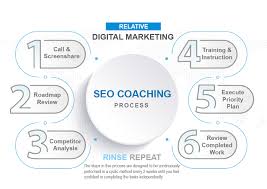The Power of E-commerce Marketing
In today’s digital age, e-commerce has revolutionised the way businesses sell products and services. With the click of a button, consumers can browse, select, and purchase items from the comfort of their homes. However, in a crowded online marketplace, standing out and attracting customers requires effective e-commerce marketing strategies.
Understanding E-commerce Marketing
E-commerce marketing encompasses all activities aimed at driving traffic to an online store, converting visitors into customers, and retaining them for repeat purchases. It involves a mix of digital tactics tailored to reach and engage target audiences effectively.
Key Components of E-commerce Marketing
Search Engine Optimization (SEO): Optimising your e-commerce website for search engines is crucial for improving visibility and ranking higher in search results. By targeting relevant keywords and creating high-quality content, you can attract organic traffic to your site.
Pay-Per-Click Advertising (PPC): PPC campaigns allow you to place ads on search engines and other platforms, paying only when users click on them. This targeted approach can drive immediate traffic to your site and increase conversions.
Social Media Marketing: Leveraging social media platforms like Facebook, Instagram, and Twitter can help you connect with your audience, build brand awareness, and drive traffic to your e-commerce store. Engaging content and targeted ads are key to success in social media marketing.
Email Marketing: Building an email list enables you to communicate directly with customers and prospects. By sending personalised messages, promotions, and updates, you can nurture relationships with your audience and encourage repeat business.
The Benefits of E-commerce Marketing
Increased Reach: E-commerce marketing allows businesses to reach a global audience beyond geographical boundaries. With the right strategies in place, you can attract customers from different regions and markets.
Improved Conversion Rates: By targeting specific customer segments with tailored messages and offers, e-commerce marketing can increase conversion rates on your website. Personalisation plays a significant role in driving sales in the online space.
Data-Driven Insights: The digital nature of e-commerce marketing provides access to valuable data on customer behaviour, preferences, and trends. By analysing this data, businesses can make informed decisions to optimise their strategies for better results.
In Conclusion
E-commerce marketing is essential for businesses looking to thrive in the competitive online landscape. By leveraging various digital channels and tactics effectively, companies can attract more customers, drive sales growth, and build lasting relationships with their audience. Embrace the power of e-commerce marketing to unlock new opportunities for your online store.
Key Insights into E-commerce Marketing: Importance, SEO Benefits, Social Media Strategies, Email Advantages, and the Role of Content Marketing
- What is e-commerce marketing and why is it important?
- How can SEO help improve the visibility of my e-commerce website?
- What are some effective social media marketing strategies for e-commerce businesses?
- How can email marketing benefit my e-commerce store?
- What role does content marketing play in e-commerce marketing?
What is e-commerce marketing and why is it important?
E-commerce marketing refers to the strategic use of digital tactics and channels to promote and sell products or services online. It encompasses a range of activities such as search engine optimisation, social media marketing, email campaigns, and pay-per-click advertising tailored to drive traffic, engage customers, and boost sales on e-commerce platforms. The importance of e-commerce marketing lies in its ability to expand reach, increase brand visibility, and drive conversions in the competitive online marketplace. By implementing effective e-commerce marketing strategies, businesses can attract a wider audience, build customer loyalty, and achieve sustainable growth in the digital realm.
How can SEO help improve the visibility of my e-commerce website?
Search Engine Optimization (SEO) plays a crucial role in enhancing the visibility of your e-commerce website. By implementing SEO best practices such as keyword research, on-page optimization, and link building, you can improve your website’s ranking on search engine results pages. This means that when potential customers search for products or services related to your business, your website is more likely to appear higher in the search results, increasing the chances of attracting organic traffic. Additionally, SEO helps in making your website more user-friendly and accessible to search engine crawlers, ultimately leading to improved visibility and higher chances of reaching your target audience effectively.
What are some effective social media marketing strategies for e-commerce businesses?
When it comes to enhancing the online presence of e-commerce businesses, implementing effective social media marketing strategies is crucial. Some key tactics include creating engaging visual content to showcase products, running targeted advertising campaigns to reach specific audiences, collaborating with influencers to promote products authentically, and leveraging user-generated content to build trust and credibility. Additionally, engaging with customers through interactive posts, hosting live events or sales, and offering exclusive promotions can help drive traffic to e-commerce websites and boost sales. By combining these strategies with a consistent brand voice and a deep understanding of your target market, e-commerce businesses can maximise their social media presence and connect with customers on a more personal level.
How can email marketing benefit my e-commerce store?
Email marketing can significantly benefit your e-commerce store by providing a direct and personalised way to engage with your customers. By building an email list and sending targeted campaigns, you can nurture relationships with your audience, promote new products or offers, and drive traffic back to your online store. Email marketing allows you to stay top of mind with customers, encourage repeat purchases, and ultimately increase sales. Additionally, through analytics and tracking tools, you can measure the effectiveness of your email campaigns, gain valuable insights into customer behaviour, and continuously refine your strategies for better results.
What role does content marketing play in e-commerce marketing?
Content marketing plays a pivotal role in e-commerce marketing by serving as the bridge that connects businesses with their target audience. Through compelling and relevant content such as product descriptions, blog posts, videos, and social media updates, businesses can engage, educate, and inspire potential customers. Effective content marketing not only helps in driving traffic to e-commerce websites but also nurtures relationships with customers, establishes brand credibility, and ultimately influences purchasing decisions. By providing valuable information and creating a seamless user experience, content marketing enhances the overall success of e-commerce strategies by building trust and loyalty among consumers.




